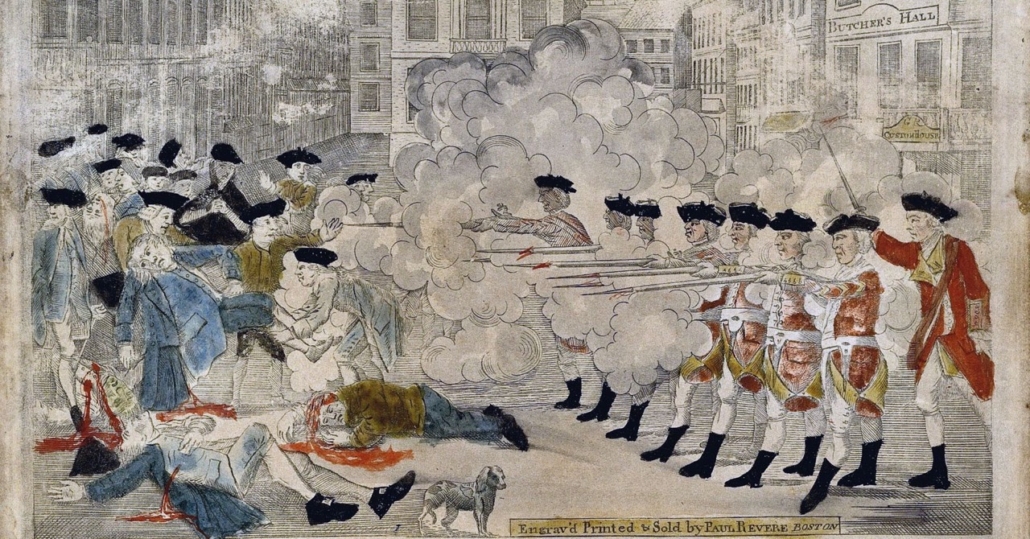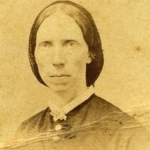Up and Down the Kennebec Valley: Revolution effects: Augusta from 1778
by Mary Grow
This article continues the history of the American Revolution’s effects on Hallowell (later Augusta), on the Kennebec River, beginning in the year 1778.
* * * * * *
James North, in his history of Augusta, mentioned only one Hallowell town meeting during the year 1777. There were at least two in 1778, mostly dealing with local finances. The town’s population was about 100 families in those years.
In 1778, a new law (probably Massachusetts, not national, though North did not specify) confiscated properties of Tories who had abandoned them (or had been exiled by the September “Banishment Act of the State of Massachusetts”). The law named names; North said the Kennebec Valley list included former Kennebec Proprietors and kin Sylvester Gardiner, Benjamin and Robert Hallowell and William and John Vassall.
Because of the war, North wrote, the export of large trees suitable for ships’ masts, which had stopped when residents opposed helping the British Navy, resumed, for the American Navy. Captain Samuel Howard sold 48 masts, 27 anchor stocks (the wooden arm on the top of an anchor that forces the fluke on the bottom to dig into the seabed or lakebed), 14 bowsprits and 4,299 inches of “spars [wooden poles that support a ship’s rigging] of various sizes.”
Some of the masts were too big to fit on the ship delivering them to Boston and had to be towed behind it, North wrote.
The revived mast business was about the only good economic news. By 1779, North wrote, state taxes “were very heavy upon the town.” He listed three separate bills; the first two, in March and July, were in British pounds, the third, in December, was in American dollars.
In addition, he wrote, “the selectmen were required, under a heavy penalty, to furnish the families of non-commissioned officers and soldiers who had enlisted in the Continental army from the town with necessaries, in conformity with a resolve passed by the [Massachusetts] General Court for that purpose.”
On June 26, 1779, militia Captain Daniel Savage was ordered to send 13 Hallowell men, either including (North’s copy of the order) or supplemented by (Kingsbury’s version) a sergeant, a corporal and himself, on the Bagaduce (Castine, Penobscot) expedition (see Box 1).
Captain Savage ended up commanding 50 men from four companies. After British reinforcements compelled an American retreat, North said some men went to Camden. Others “suffered much from hunger and fatigue” as they followed Indian guides to Fort Halifax on the Kennebec.
Neither North nor Kingsbury said how many Hallowell men returned safely. Savage did; North wrote that he was born in 1729; married twice and fathered 10 children between 1757 and 1774; and died Jan. 1, 1795, at the age of 66.
The national debt (and taxes) “hung with a two-fold weight upon the people,” North said, because of the “deranged state of the currency” and because so many men were in the military. He illustrated his point with examples of currency depreciation and related price increases from 1780 and 1781 accounts.
Food and other necessities were scarce as well as expensive. North quoted contemporary references to people short of food and clothing, living on “a little coffee” (no tea, and no sugar for the coffee) and alewives and clams.
North called the winter of 1779-1780 unusually hard, with the Kennebec frozen well downstream of Hallowell – teams hauled masts on the ice – and “uncommonly deep” snow that lasted into April. There were 10 town meetings that year, he said, and 110 families in town.
Despite the town’s small and impoverished population, North wrote of continuing high taxation – bills were presented in May, July and October, although he said the taxes were not actually assessed until January 1781. The July payment was required in “gold and silver,” not paper currency.
North recorded that a May 1780 meeting approved paying men who enlisted in pine boards and keeping the less valuable state or national “bounty and wages” for the town. He copied a long report from a committee appointed in the fall recommending the amounts to recompense soldiers, listed individually, for the Bagaduce and other expeditions.
At the end of November 1780, Hallowell was required to send six more men for three years’ military service. In addition, North said, that year the national government started requisitioning supplies, instead of increasingly worthless currency. Hallowell was required to provide 3,260 pounds of beef in September (voters appropriated 5,000 British pounds to obtain it) and another 6,261 pounds on Dec. 4.
North said several times that Hallowell voters did their best to contribute to the war effort. Early in 1781, he described a failure.
On Jan. 7, North said, a Massachusetts legislative resolve said Hallowell needed to send another half-dozen volunteers from Captain Savage’s company to the continental army. Should the captain not get them, the resolve said he should ask the selectmen to call a town meeting.
He didn’t, the selectmen did and a Jan. 19 town meeting at Fort Western directed selectmen and militia officers to find the volunteers and authorized borrowing money to provide a ninety-guinea bounty (per man, evidently). The meeting reconvened Jan. 27 and added 15 guineas per man to the bounty.
That inducement still failed. Meanwhile, apparently the first of three “beef taxes” had been imposed. On Feb. 12, North wrote, voters chose Captain Savage, Ephraim Ballard (Martha Ballard’s surveyor husband; see the July 10 issue of The Town Line and Captain James Cocks (see Box 2) a committee “to petition the [Massachusetts] General Court for ‘relief of the beef tax and our quota of soldiers.'”
There were more taxes, and soldiers needing back pay, and the currency became less and less valuable. Both Kingsbury and North specifically mentioned the federal government’s June 22, 1781, demand for “2,580 pounds of beef, 11 shirts, 11 pairs of shoes and stockings, and 5 blankets, for the continental army.”
When Hallowell was unable to meet the requisitions completely and immediately, the Massachusetts General Court demanded a monetary equivalent, in silver, not paper, and threatened to fine the town. North said the required 770 pounds in silver equaled $200,000 in currency – way beyond Hallowell’s resources.
Another town meeting, on Dec. 19 (at Capt. Savage’s house, North said), did not even try to find the money. Voters appointed another committee to find soldiers, and told the selectmen to petition the General Court for relief.
Fortunately, Kingsbury wrote, British General Charles Cornwallis had surrendered at Yorktown on Oct. 19, 1781, and “liberated the town from the pending exactions.”
North wrote that after Cornwallis’ surrender, the ocean off Maine “continued to be infested with the enemy’s cruisers,” which interfered with commerce. Inland, he summarized conditions at the end of 1783, after the Sept. 3 Treaty of Paris formally ended the war.
The war, he said, had “left the country prostrate in its industrial pursuits; commerce…had nearly died out; manufactures originating in the necessities of the times were new and unskilled, and agriculture had made but little advance.”
Hallowell voters nonetheless embarked on development. Voters at 1783 town meetings authorized building a meeting house (which wasn’t immediately finished) and extending roads, for example.
By 1784, North had no more to say about the war. Hallowell’s widows, orphans, wounded veterans and new settlers from farther south must have often remembered it.
The Bagaduce expedition, July and August 1779
According to several websites, the Bagaduce, Penobscot or Castine expedition was an American response to the British occupation of today’s Castine, a town on the east bank of the Penobscot River just above the junction of the Bagaduce River. The Penobscot roughly parallels the Kennebec, flowing from northern Maine into the Atlantic.
In June 1779, British forces established Fort George, on the Majabigwaduce Peninsula. Their goal was to organize a Loyalist colony, New Ireland.
Massachusetts sent more than 1,000 soldiers, in 19 warships and 25 smaller vessels, to drive the British away. The army included a 100-man artillery unit commanded by Lieutenant Colonel Paul Revere. The expedition’s commander was Commodore Dudley Saltonstall; Brigadier General Solomon Lovell was in charge of the land forces.
The Americans left Boston on July 19, reached Castine before the end of the month and shut the British into their fort. On July 28, some American troops landed and began their own fortifications; Americans and British exchanged intermittent raids and gunfire.
The Americans made no more progress. On Aug. 13, a British relief expedition – six large warships, with longer-range guns and better gun crews than the Americans had – drove them away.
The American fleet went up the Penobscot, where crews abandoned and often set fire to their ships. The men walked through the wilderness to safety, some getting to Camden and others making a weary, hungry hike to Fort Halifax.
A Revolutionary War website calls the Penobscot expedition one of Britain’s greatest victories of the war, and “the United States’ worst naval defeat until Pearl Harbor in 1941.”
This site’s writer, and other historians, blame the American failure on disagreements between Lovell and Saltonstall, putting most of the onus on Saltonstall, whom the website writer calls “ultra-cautious” and “timid.” Lovell wanted the American fleet to attack the ships that brought the British soldiers to Castine, so their guns couldn’t be used against American land attacks; Saltonstall said no, too risky.
At a September court-martial, Saltonstall was “declared to be primarily responsible for the debacle, found guilty, and dismissed from military service.” Revere was accused of “disobedience and cowardice” and “dismissed from the militia”; later, he was cleared.
The expedition cost the Americans an estimated 474 men killed, wounded, taken prisoner or missing. British casualties the website estimates at 25 killed, another 35 wounded and 26 taken prisoner, out of a force of about 600.
Captain James Cocks
North’s history of Augusta included a summary of Captain James Cocks’ life, with a footnote saying the captain’s descendants spelled the name Cox.
North said Cocks was 28 when he came from Boston to the Kennebec around 1762 (that year he was granted a lot in contemporary Chelsea, on the east side of the Kennebec just south of Augusta) with his wife, Nancy Beveridge, of Boston, and their two oldest (of 10) children.
FamilySearch says Cocks was born Sept. 18, 1733, in Boston. This source gives him two similar but different wives, the one closer to matching North’s story being Nancy Ann Babbidge, born in Boston Nov. 11, 1733. They were married in 1756 in Massachusetts, FamilySearch says.
North said Cocks was a nephew of Kennebec Proprietor Gershom Flagg. He described him as “a cheerful man, of pleasant countenance,” who was allegedly rejected by the army, “which he was desirous to enter,” because he was too short. An on-line genealogy says in August 1776, Cocks was captain of the first company, second regiment, Massachusetts militia.
According to North, Cocks so seldom attended church that once when he was angrily threatening another man, the victim’s friends advised him to escape to the meeting-house, where Cocks would never follow.
North wrote that Cocks was moderator of numerous town meetings, a selectman and “one of the captains of the town.” The on-line genealogy says he earned his living as a farmer, housewright and glazier.
FamilySearch says he died Sept. 3, 1809, in Hallowell. Nancy died in 1817, back in Boston, according to this source.
Main sources
Kingsbury, Henry D., ed., Illustrated History of Kennebec County Maine 1625-1892 (1892)
North, James W., The History of Augusta (1870)
Websites, miscellaneous.
Responsible journalism is hard work!
It is also expensive!
If you enjoy reading The Town Line and the good news we bring you each week, would you consider a donation to help us continue the work we’re doing?
The Town Line is a 501(c)(3) nonprofit private foundation, and all donations are tax deductible under the Internal Revenue Service code.
To help, please visit our online donation page or mail a check payable to The Town Line, PO Box 89, South China, ME 04358. Your contribution is appreciated!





Leave a Reply
Want to join the discussion?Feel free to contribute!